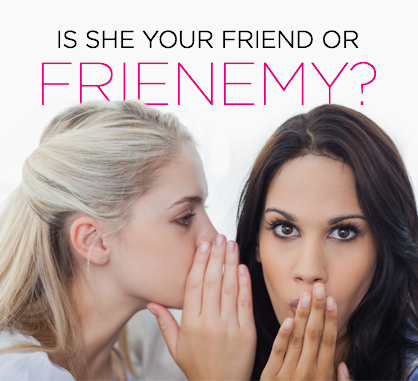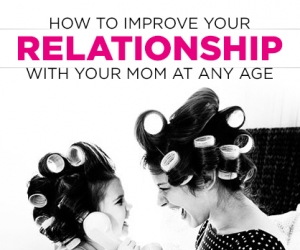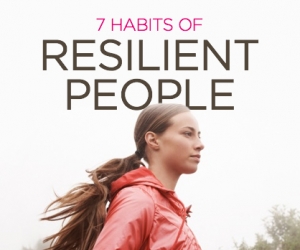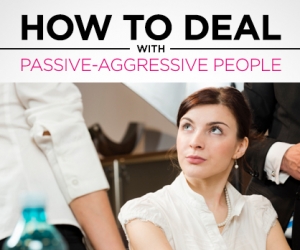How to Tell if She’s a Friend or Frienemy
Does she try to undermine your self-confidence?
A frienemy is someone who pretends to be your friend but is actually a rival. This person often uses subtle put-downs to insult and make you feel inferior. Sometimes the comments and behavior are hard to detect, and you're simply left with a general sense of knowing something is not right, but not that they're trying to undermine and insults are intended to hurt.
It's easy to figure out if someone is your friend or a frienemy. Pay attention to their actions and listen to those instead of what they say. You'll quickly be able to weed out the bad seeds and focus on those people who truly care about you and your well-being.

Friend or foe?
Nicole Zangara, LCSW and author of Surviving Female Friendships: The Good, The Bad, and The Ugly, talked to LadyLUX about what she considers important markers:
LadyLUX: How can you tell if a woman is a friend or an enemy or frienemy?
Nicole Zangara: Friend: Someone who is loyal, who respects you, who you can count on. Enemy: Someone who has malicious intent, someone who you don't get along with, someone who does not respect you. Frienemy: Someone who pretends to be your friend but may talk about you behind your back; for example, she's nice to your face but may say cruel things when not in your presence.
LL: What is the difference between an enemy and a frienemy?
NZ: A frienemy pretends to be your friend (when she sees you, she gives you a big hug) and may even be someone you are in competition with (for example, you both like the same guy or are competing for the same job) but when she leaves you, she says negative things. An enemy does not pretend and makes it very clear she doesn't like you. An enemy is someone with whom you've had a disagreement or some type of negative confrontation with. A frienemy is someone with whom you may smile at and talk to, but really don't care about this person and vice versa.
LL: Does this type of friendship exist among men or is it unique to women?
NZ: I think it's more unique to women, since there's more jealousy, insecurity and competition among women. Women are generally more emotional than men, so they feel their emotions in a more intense way (not to say that men don't feel emotions, but I'm speaking on general terms). Women also view their friendships differently than men do and have a more emotion-based friendship, whereas men have more action-based friendships (men go to a sporting event together or meet up for drinks); women will spend the whole day shopping or end up meeting for lunch and spend the whole time talking/catching up. When women feel threatened, it can create more negative or insecure emotions about the friendship. Men who don't like each other just won't hang out, but women don't find it as easy since that person they don't like may be in their social circle, and so they have to put on a face around this person. Women are also more picky about their friends than men (again, generally speaking).
LL: What can you do if you think one of your friends fits this description?
NZ: If you feel comfortable enough to talk about it with your friend, then try to bring this up. Is there some jealousy or competition going on that you're not aware of? Is the friend feeling threatened or is she angry about something that's making her act nice to your face but she's talking badly about you to other people? Open up the conversation if you feel she would be open to the idea.
LL: Can the relationship be salvaged?
NZ: It depends on the friendship; if you two have been friends for a while and have been through confrontation before, the friendship probably has a better outcome. If you're able to openly and honestly talk about what's going on and what's upsetting you both, then the friendship can be salvaged. If the friend won't own up to her backstabbing or talking about you behind your back, then you have your answer. It depends on the nature of the friendship and what you're both willing to acknowledge and possibly change to make the friendship work.
Follow your instinct
Toni Coleman, LCSW, said use your gut instinct to determine if someone is friend or foe. “Instinct definitely plays a role here. Something just doesn’t feel right at times — the way she responds to your good news, a compliment that feels like it’s left-handed, and/or or how she always wants to know details about something you are planning/creating/working towards, so she can go out and do the same but do it one better,” she said.
“Frienenemies have agendas that go beyond just wanting to be your friend — you serve a purpose, even if it’s just for them to feel better about their own life because yours is such a challenge right now. They are the ones that talk about their other women friends in not nice ways and if they do it to her, they will do it to you. This is definitely the kind of woman every woman should avoid,” Coleman said.
Tagged in: relationships, psychology, friends,



